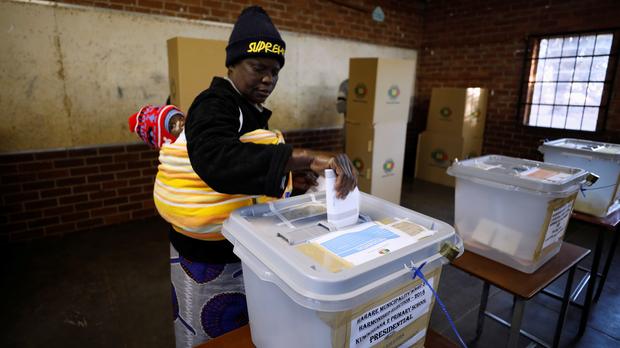Source: Cabinet’s Proposed Electoral Amendment Bill
Last Tuesday the Cabinet approved an Electoral Amendment Bill which was presented by the Minister of Justice, Legal and Parliamentary Affairs.
According to the post-Cabinet press briefing, the Bill seeks to amend the Electoral Act to provide for the following things:
- The timeframe within which National Assembly and local authority candidates can withdraw from contesting an election,
- Incorporation of a 30 per cent women quota as well as a youth quota [see our comment below], and
- Amendment of the definition of proof of identity. In terms of the Constitution one has to be a citizen in order to qualify as a voter; accordingly, only the valid passports or national identity cards will be accepted as proof of identity [again, see our comment below].
The post-Cabinet briefing document indicated that the above list is not exhaustive, so the Bill will probably deal with other matters as well.
The purpose of the Bill is to:
- To ensure that only citizens are able to vote in elections,
- To ensure that only proper candidates are allowed to contest elections, and
- To provide clarity on when and how candidates can withdraw from elections so that the Zimbabwe Electoral Commission has sufficient time to change the design of ballot papers and advise the electorate of their withdrawal.
Comments on the Proposed Bill
Quotas for women and youths
It is not clear how these quotas will apply. The Constitution already provides for:
- Sixty women members of the National Assembly to be elected on a party-list system [section 124 (1)(b) of the Constitution],
- Ten youth members of the National Assembly also to be elected on a party-list system [section 124(1)(c) of the Constitution, as amended by Act 2 of 2021], and
- Senators to be elected on a party-list system in which male and female candidates must alternate on each list [section 120(2) of the Constitution].
Perhaps the Bill is going to require parties to have specified proportions of women and youths among their nominated candidates for constituency seats in the National Assembly, but whether it will do this and, if it will, how it will do it, will become clear only when the Bill is published.
We also note that Parliament already has quite enough proportionally-elected members. If there are too many of them Parliament will become unreasonably biased in favour of the party getting most votes, and may cease to be representative. This is because proportionally-elected members are elected on the basis of votes cast for constituency members and are not voted for separately, so each vote cast for a constituency member is also cast for one or more proportionally-elected members. Also, if proportionally elected members leave Parliament or die in mid-term they are not replaced through by elections so the electorate is not given a say in choosing their replacements.
Proof of identity
At present the Electoral Act defines proof of identity as including Zimbabwe passports, national IDs and drivers licences. The amendment will remove drivers licences from the list. What this will mean is that people who apply to be registered as voters will have to produce their passports or national IDs under section 24(6) of the Electoral Act – which is fair enough – but it will also mean that people who are already registered as voters will not be able to use their drivers licences to identify themselves at polling stations in terms of section 56(3) of the Act. They should be allowed to do this because drivers licences are a perfectly acceptable form of identification, and voters who come to a polling station should not have to prove their citizenship. They have already proved they are citizens when they were registered on the voters roll.
Time limit for the passing of the Bill
Section 157(5) of the Constitution states that after an election has been called, no change to the electoral law will have effect for the purposes of that election. Hence if the Bill is to apply to the 2023 general election it will have to be passed by Parliament and promulgated as an Act before the President publishes a proclamation calling the election in terms of section 38 of the Electoral Act – and he will have to do that by mid-July 2023 at the latest. Ideally the Bill should be enacted well before that date so as to give Parliament a thorough opportunity to debate it and propose amendments, and to give political parties and candidates enough time to comply with the new requirements laid down by the Bill.
Veritas will publish the Electoral Amendment Bill on its website as soon as it becomes available.
Veritas makes every effort to ensure reliable information, but cannot take legal responsibility for information supplied.

COMMENTS